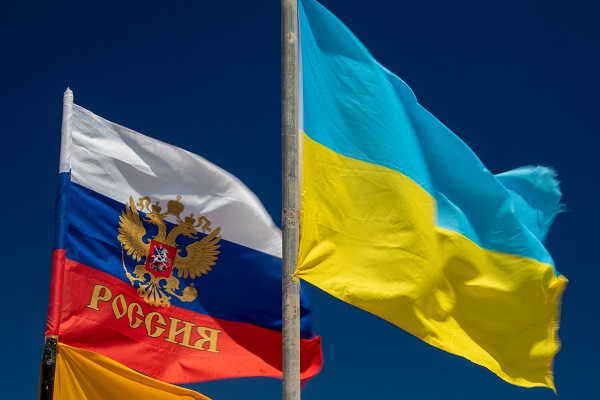Russia’s bad decisions are history repeating itself
March 26, 2023
The Crimean War of 1853–1856 of the Russian Empire with Great Britain, France, and Turkey began as the Russo-Turkish War. The reason for it was the decision of Tsar Nicholas I to introduce Russian troops into Moldavia and Wallachia, which were under the sovereignty of the Ottoman Empire. The refusal of Russia to withdraw its troops from Moldavia and Wallachia led to the declaration of war by Turkey.
Russia sought to strengthen its influence in the Balkans and Transcaucasia, to push its borders with the Ottoman Empire farther south, and wanted to establish control over the Christian holy places in Palestine, which were under the control of the Ottoman Empire. The Orthodox then lived not only in the Holy Land, but also in Greece, Bulgaria, Serbia, and Wallachia. Russia sent troops into Moldavia and Wallachia to “protect the co-religionists.”
The idea of defending the “Russian world,” popular in the Russian Federation lately, was not very convenient for the multinational Russian Empire in those years. Therefore, instead of the ideology of “defense” of Greeks, Armenians, Bulgarians, and Serbs, the idea of support for Orthodox co-religionists was put forward. Similar imperial arguments were put forward by the Russian Federation to protect ethnic Russians in the Donetsk and Lugansk People’s Republics of Donbass during the intervention in February 2022.
During the war in the middle of the century before last, the Russian Empire sought to destroy the rival Ottoman Empire as a single state; become suzerain of the Turkish vassals Bulgaria, Moldavia, Serbia, and Wallachia; and establish control of the Bosporus and Dardanelle straits. Nicholas I mistakenly believed that a military alliance between Great Britain and France was impossible. However, a strong Western anti-Russian coalition was created.
In his plans of conquest, Putin misjudged the West as much as Nicholas I misjudged the Anglo-French alliance. Nicholas I counted on the support of Prussia and Austria, but they respected neutrality and helped isolate Russia on the world stage.
Russia lost the Crimean War. It could not effectively support 10 million Orthodox Christian subjects of the Sultan, was unable to control the holy places in Palestine, and did not achieve access to the straits and was forced to lose the lower Danube. It was forbidden to have a naval fleet and build military fortifications on the Black Sea.
The geopolitical messianic concept of holy Russia was a practical expression of Russia’s imperial expansion to the East. Of the Crimean War, the opposition publicist and philosopher Alexander Herzen wrote: “Russia is seized with the syphilis of patriotism.” Before this war, Russian poetry named new capitals that were destined to become part of the Russian Empire: Tsargrad (Constantinople — that is, Istanbul) and Jerusalem. It was these imperial fantasies that led England and France to participate in the war on the side of the Ottoman Empire.
As usual in Russia, during the Crimean War, nationalism reached a degree of great-power chauvinism, an ideology of national superiority and dislike for foreigners. In Russia, chauvinism is based on a “collective narcissism” rooted in the people’s consciousness.
The concept of “collective narcissism” was introduced by psychoanalyst Erich Fromm and sociologist Theodor Adorno in the 1940s. “The narcissistic factor … implies a constant and sometimes violent demonstration that the follower belongs to his group, that he is better, higher and purer than those who are not included in it. At the same time, any criticism or self-criticism is dismissed as a narcissistic loss and causes rage,” Adorno wrote.
In Humble: Free Yourself from the Traps of a Narcissistic World (2022), Daryl Van Tongeren showed that Russia is the world leader in collective narcissism: 60.8 percent of respondents believe that their country has significantly influenced world events. In such a society, most of its members share the belief that their country has a particularly high value and significance. Such narcissists demand privileged treatment, which breeds xenophobia and chauvinism.
The political reason for Russia’s defeat in the Crimean War was the alliance against it of the major Western powers, England and France, which were militarily and technically far superior to Russia. The war in Ukraine repeats the main features of the Crimean War: Russia lit the fire of great-power chauvinism in Ukraine and once again found itself facing the superior forces of Western countries.

Image via Public Domain Pictures.
If you experience technical problems, please write to helpdesk@americanthinker.com
FOLLOW US ON



